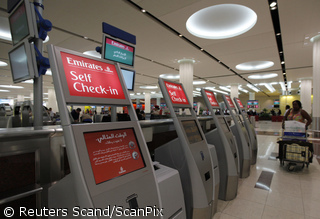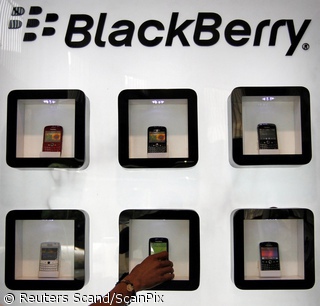New mobile services will inevitably mean an increase in the amount of sensitive data travelling around the globe via a variety of networks and technologies.
Published:
23 March 2001 y., Friday
The success of future services will rely on building customer confidence.
Many leading companies with an interest in the field have formed an alliance called Radicchio. The aim is to produce a standard for cross-platform, end-to-end encryption (the translation of data into a code that requires a secret key or password) for security. Known as PKI (Public Key Infrastructure), it comprises a two-part data encryption/ decryption key. One part is available for distribution to companies supplying services, while the other is kept privately by the user, much like the PIN number for a credit card.
Mike Walker, chief scientist for Vodafone, chairman of the 3GPP (Third Generation Partnership Project – the standardisation forum for 3G mobile systems) Working Group SA3 (Security) and a member of the Radicchio board says that PKI is vital to ensure that mobile e-commerce does not suffer from the same degree of distrust as has fixed-access Internet trading.
Other solutions do exist for these technologies. WAP has a built-in security feature, but it only encrypts data between the handset and the gateway to the Internet. This means that any data sent beyond this point could be read by anyone with the means to intercept it. Some companies, in partnership with banks and traders, have set up Virtual Private Networks (VPNs), so that customers can carry out secure transactions and pass sensitive data without using the public part of the World Wide Web. However, the service is only available from those companies that have signed up with a VPN. This may be fine for banks and their customers, but in the long run it will not deliver the freedom to trade with whomever one wishes on the public Web.
Šaltinis:
cebitnews.com
Copying, publishing, announcing any information from the News.lt portal without written permission of News.lt editorial office is prohibited.
The most popular articles
Software company announced new structure_ of it_s business.
more »
 Unisys Corporation (NYSE: UIS) announced enhancements to its Baggage Reconciliation System (BRS) featuring more detailed information about baggage handling requirements for incoming flights, real-time monitoring and alerts of service level agreements (SLAs), and a mobile app to provide passengers with live updates on when and where to collect their bags.
more »
Unisys Corporation (NYSE: UIS) announced enhancements to its Baggage Reconciliation System (BRS) featuring more detailed information about baggage handling requirements for incoming flights, real-time monitoring and alerts of service level agreements (SLAs), and a mobile app to provide passengers with live updates on when and where to collect their bags.
more »
 Samsung doubled its share of the tablet PC market in the last three months of 2012, research firm IDC has said.
more »
Samsung doubled its share of the tablet PC market in the last three months of 2012, research firm IDC has said.
more »
 Facebook boss Mark Zuckerberg has strongly denied the social network is planning to release its own phone.
more »
Facebook boss Mark Zuckerberg has strongly denied the social network is planning to release its own phone.
more »
 The OnLive gaming service is to be made available to Google TV users, following a deal with electronics firm LG. One of a handful of firms making hardware for Google TV. LG's G2 series sets have Google's TV service built in.
more »
The OnLive gaming service is to be made available to Google TV users, following a deal with electronics firm LG. One of a handful of firms making hardware for Google TV. LG's G2 series sets have Google's TV service built in.
more »
 Blackberry has become the latest smartphone to offer free wi-fi calls to users via its own software. Research In Motion (RIM) has added the facility to its Blackberry Messenger (BBM) app, which already offered an alternative to text messages.
more »
Blackberry has become the latest smartphone to offer free wi-fi calls to users via its own software. Research In Motion (RIM) has added the facility to its Blackberry Messenger (BBM) app, which already offered an alternative to text messages.
more »
 We are delighted to announce that on 26th of January SafeNet Sentinel Cloud was awarded the SiiA 2012 Best Digital Rights Management Solution!
more »
We are delighted to announce that on 26th of January SafeNet Sentinel Cloud was awarded the SiiA 2012 Best Digital Rights Management Solution!
more »
 The Spanish government has approved tough new legislation which could see websites deemed to be trading in pirated material blocked within ten days.
more »
The Spanish government has approved tough new legislation which could see websites deemed to be trading in pirated material blocked within ten days.
more »
 The Los Angeles World Airports (LAWA), which oversees airport operations for the city of Los Angeles, has awarded a contract modification to Unisys (NYSE: UIS) to upgrade its access control and alarm monitoring system, used to identify the 45,000 airport employees, contractors, police and others who work at the organization’s three airports.
more »
The Los Angeles World Airports (LAWA), which oversees airport operations for the city of Los Angeles, has awarded a contract modification to Unisys (NYSE: UIS) to upgrade its access control and alarm monitoring system, used to identify the 45,000 airport employees, contractors, police and others who work at the organization’s three airports.
more »
 Unisys Corporation (NYSE: UIS) today announced Version 2 of its Unisys Secure Private Cloud Solution, the company’s flagship cloud solution for clients’ and cloud service providers’ data centers.
more »
Unisys Corporation (NYSE: UIS) today announced Version 2 of its Unisys Secure Private Cloud Solution, the company’s flagship cloud solution for clients’ and cloud service providers’ data centers.
more »
 An American blogger has discovered three fake Apple stores operating in Kunming city, China.
more »
An American blogger has discovered three fake Apple stores operating in Kunming city, China.
more »